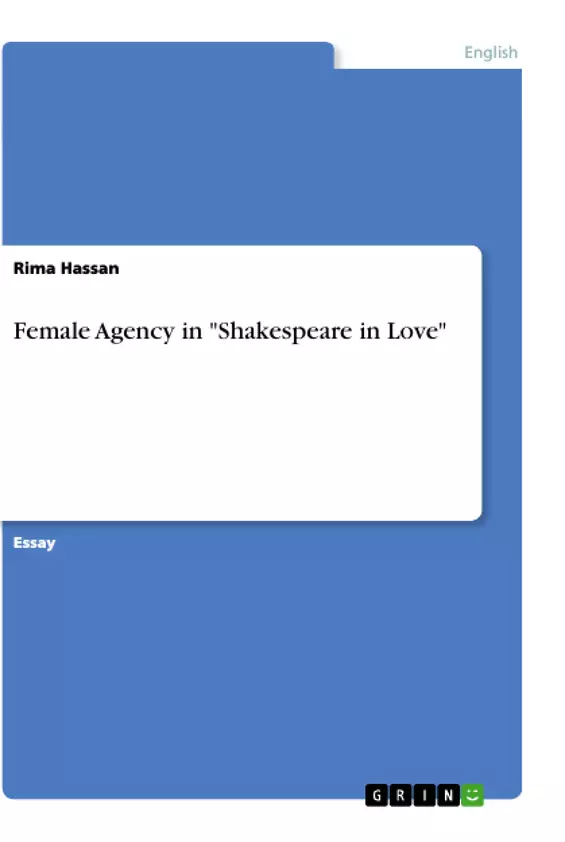This essay revolves around the power of female characters in Shakespeare's most famous play Romeo & Juliet. Numerous interpretations on Shakespeare's plays claim that he had a misogynistic attitude since his plays mostly show how women are degraded by men and thus, lead to tragic consequences .However, in this essay, I rely on John Madden's film adaptation "Shakespeare in Love" as it reveals numerous female characters who present a vision of social revolution through which they prove female agency during the Elizabethan period.The adaptation does not only prove that women were capable to speak for themselves and break down gender stereotypes, but also suggests that there is a possibility that Shakespeare wanted this issue to be resolved.
Inhaltsverzeichnis (Table of Contents)
- Question 1: The "Golden Age" and the Elizabethan Period
- The Elizabethan Era as a Period of Change and Flourishing
- The Rise of Theatres and Playwrights
- The Subordinate Status of Women in Early Modern England
- Queen Elizabeth I: A Powerful Female Figure in a Patriarchal Society
- The Exclusion of Women from Theatre Performances
- Shakespeare's Portrayal of Women and the Potential for Social Revolution
- Adaptation and Reinterpretation: Shakespeare in Love
- Adaptation as Repetition and Reformation
- The Significance of Storyline in Film and TV
- Adaptation as Interpretation and Creation
- Shakespeare in Love: Reinterpreting Female Strength in Romeo and Juliet
- Women's Agency and Empowerment in Shakespeare in Love
- The Queen: A Corroborative Evidence of Hegemonic Control
- The Influence of the Queen on Theatre and Playwrights
- The Queen's Opposition to Marriage and Her Devotion to Her Reign
- The Importance of Character Engagement in Narrative Texts
- Female Characters in Shakespeare in Love: Affirming Female Autonomy
- Quote paper
- Rima Hassan (Author), 2021, Female Agency in "Shakespeare in Love", Munich, GRIN Verlag, https://www.grin.com/document/1214364



